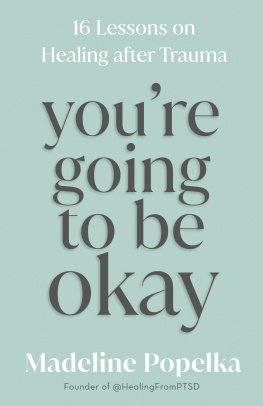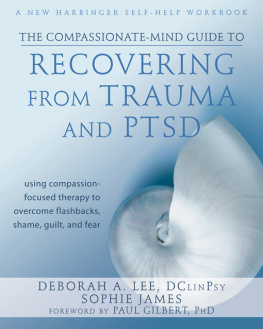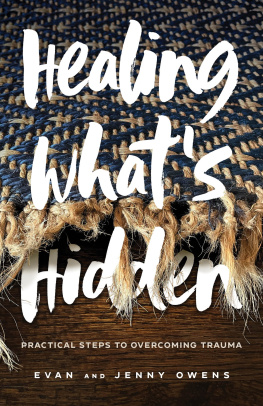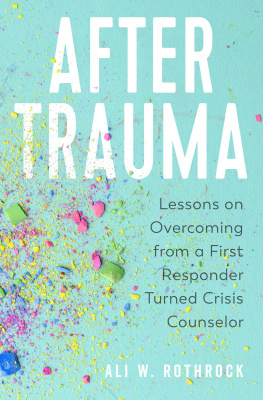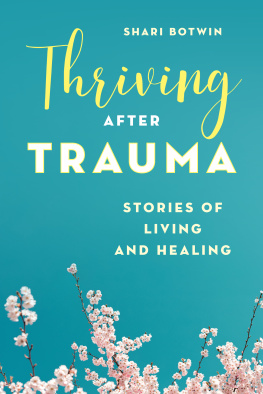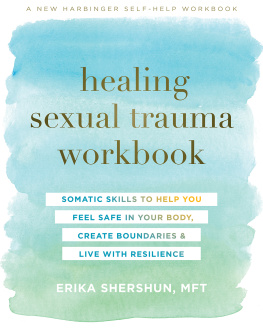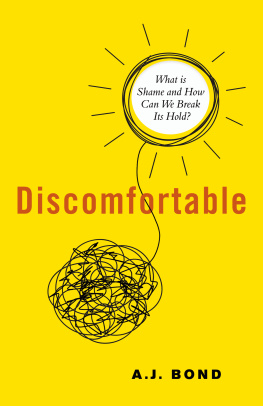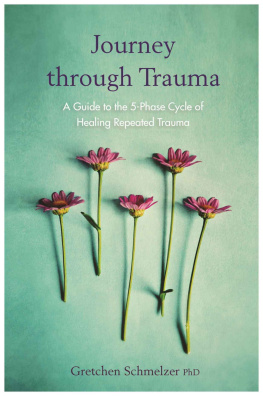Copyright 2022 by Madeline Popelka
Published in the United States by: Hay House, Inc.: www.hayhouse.com
Published in Australia by: Hay House Australia Pty. Ltd.: www.hayhouse.com.au
Published in the United Kingdom by: Hay House UK, Ltd.: www.hayhouse.co.uk
Published in India by: Hay House Publishers India: www.hayhouse.co.in
Project editor: Melody Guy
Cover design: Julie Davison
Interior design: Bryn Starr Best
All rights reserved. No part of this book may be reproduced by any mechanical, photographic, or electronic process, or in the form of a phonographic recording; nor may it be stored in a retrieval system, transmitted, or otherwise be copied for public or private useother than for fair use as brief quotations embodied in articles and reviewswithout prior written permission of the publisher.
The author of this book does not dispense medical advice or prescribe the use of any technique as a form of treatment for physical, emotional, or medical problems without the advice of a physician, either directly or indirectly. The intent of the author is only to offer information of a general nature to help you in your quest for emotional, physical, and spiritual well-being. In the event you use any of the information in this book for yourself, the author and the publisher assume no responsibility for your actions.
Cataloging-in-Publication Data is on file at the Library of Congress
Hardcover ISBN: 978-1-4019-6824-3
E-book ISBN: 978-1-4019-6825-0
Audiobook ISBN: 978-1-4019-6826-7
To anyone who is hurting and struggling to find their way. You are not alone.
I used to believe that healing was effortless, and something that just happened to you. I assumed that, like a cut, my internal wounds would naturally heal with time if I didnt do anything to irritate or infect them. I thought that if I just forgot about what I went through, my pain would fade away.
If only healing were that easy.
Ive had a few traumatic experiences over the course of my life. While each one shook me to my core, I never recognized that what Id been through was traumatic. Because I was never harmed physically, I was always able to convince myself that what I went through wasnt a big deal. But I was wrong.
As the daughter of a refugee with a traumatic past, I experienced the effects of unhealed trauma as a young girl. My mother loved me and always wanted to provide me with opportunities shed never had. But when Id pushed her buttons, shed explode, chasing me around the house and threatening to beat me with a broom. While she never struck me, I was terrified, and Id spend hours hiding in my closet crying. I always thought that it was my fault. I thought that if I didnt talk back, if I were as smart as my older sister, or if I were just a better person, I wouldnt have made her do that to me. These memories were too painful to hold, so I buried them and didnt look back.
When I was 26, on my way to the farmers market one morning, I had to run for my life when a man began chasing after me. I breathlessly screamed for help, hoping someone would hear me, but there wasnt anyone around. In survival mode, I jumped in front of the first car I sawI would have rather been hit by a car than suffer an attack. Getting the drivers attention was enough to scare my pursuer off, and I ended up walking away untouched. I told myself, Get over it. It wasnt that bad, and I forced myself to move on.
Then, 18 months later, I witnessed my friend running out of a bathroom with tears streaming down her face after being drugged and sexually assaulted by a man I knew. What started out as an enjoyable evening of catching up over wine turned into a nightmare that I couldnt forgive myself for. I felt guilty for not being able to stop it from happening, and I was afraid: being so close to what happened that night made me feel like it could have just as easily happened to me. And because a stranger had invited himself to put his hands in my shorts in college, and because I was sexually harassed by a work colleague when I was 22, I felt like something similar would happen to me. Yet because it was my friend who suffered the assault, and not me, I pushed my fears aside.
Soon I became a person who was terrified of the world. I never felt safe, even in my own home. Every time I heard an unexpected noise, like a knock on the front door, my heart would race. I had visions of myself opening the door and getting beaten, kidnapped, or raped. I started to experience anxiety daily, and a few mornings each week, Id wake up in sweat-drenched sheets in a panic after having a nightmare. Little by little, these symptoms intensified, and eventually, they made it impossible to work, sleep, or hold conversations with my partner. I felt like I was losing my mind, and at the time, I didnt have a clue why. But I was determined to find out.
I re-evaluated every aspect of my life. I first thought that one of my clients who never paid me on time might be responsible for making me anxious, so I stopped working with that company. I thought that I might have been spending too much time on social media, so I implemented a no social media after 7:30 P.M. rule (probably for the best). I took a mini vacation to a tiny town in wine country and stayed in a B&B with no technologyjust board games, books, and fire pits. I thought my diet wasnt nutritious enough, so I got back on my plant-based regimen and cut back on alcohol. I was living the healthiest, most relaxing life I knew how to live, but the anxiety and panic were still there. I was desperate to find some relief; I just wanted to be able to feel normal again. I finally realized that I needed help from a professional, so I sought treatment from a psychologist, which led to a diagnosis of posttraumatic stress disorder (PTSD).
As I worked to manage my PTSD symptoms in therapy, I continued to struggle with nightmares, anxiety, and depression. Healing doesnt happen overnightunfortunately, your therapist cant magically heal your wounds for you. Nightmares and panic attacks made my first year of marriage so much more challenging and less fun than I wished. When I had vivid dreams and intrusive thoughts about a rapist coming to attack me, I didnt want to be touched or anywhere near men. Severe anxiety made it impossible to function day-to-day, and when depression came, I wanted to disappear. I felt worthless, like I was damaged and had no purpose in life. I asked myself, Why me? Why did I have to go through trauma? Why cant I be normal?
I let some relationships fall apart because I didnt want people in my life to see me struggling. When I could, I avoided people, making excuses for not meeting up for lunch, or going to events. Whenever I had to see people for work or social gatherings, I scraped up all the energy I could to put on a show, pretending to be cheerful and confident. But the moment Id get back home (or the second I made it into my car), Id burst into tears and cry, sometimes for hours. It was painful to hide what I was going through, but telling people wasnt an option: I thought it would be the worst thing if they ever found out. I was ashamed.
After nearly a year of treatment and being intentional with my healing, I noticed my progress. My anxiety softened, nightmares and panic attacks became rare, and I started retrieving the confidence I had lost while suffering. I realized that what happened to me wasnt my faultthat trauma cannot be preventedand that struggling with PTSD wasnt a weakness, but something that had helped me grow. I started seeing the positives woven within my healing journey, and I realized I had become a better person: more empathetic, compassionate, insightful, and emotionally intelligent. I decided to embrace my new life as a trauma survivor, including the painful moments that come along with it, which ultimately led me to find as much joy as I ever remembered having. For the first time in my life, I experienced self-love.

